Overview: This article explores Trump’s lawsuits against ‘Big Tech’ and their various aspects. It also presents the litigation history of similar cases and speculates the outcome of Trump’s Big Tech lawsuits and how Truth Social is slated to combat ‘Big Tech’.
With his recent assault against Twitter, Facebook, and Google, former President Donald J. Trump has pushed his way back into the public limelight (YouTube). His case is aimed at their alleged unconstitutional restriction of political speech, which includes, of course, his own. His detractors believe that the case will die a quick and humiliating death. Vanity Fair blared, “As foolish as you’d think: Trump’s social media lawsuit seems like a catastrophe.”
[fvplayer id=”142″]
Hannity breaks down the specifics of Trump’s Big Tech lawsuits
In an article for the New York Times, tech journalist Kara Swisher characterized Trump as a First Amendment fool who doesn’t grasp that the amendment only applies to “Congress, not Facebook.” “Not YouTube, but Congress.” Brian Fitzpatrick, a law professor at Vanderbilt University, declared that privately controlled companies are “not beholden to the same speech laws that public platforms are.” He fully expects Trump’s lawyers to face legal consequences for filing a frivolous lawsuit that is, in his opinion, a thinly disguised fundraising effort by the former president. While Erwin Chemerinsky, the dean of Berkeley Law School and a famous First Amendment scholar, admitted that many instances fall into “a grey area.”
Reading between the lines
You might be led to believe that, until you read the whole complaint, which reveals that Trump’s attorneys are aware of the issues, whether they have pled enough facts to overcome the underlying principle that the First Amendment does not apply to private action is a gray area. It turns out that the situation is more convoluted than his detractors admit.
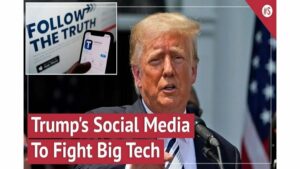
For example, the Trump complaint claimed that when Twitter decided to impose a lifetime ban on Trump’s Twitter account on the grounds that his actions on January 6, 2021, amounted to an incitement to violence that remains present after the Senate certified Joe Biden’s election, it acted “in concert” with the CDC and prominent officials of the incoming Biden administration protections only apply to Congress, allowing the president and heads of administrative agencies to suppress political opponents’ speech with constitutional impunity.
Contradicting opinions
This, however, is not the case. At this point, the text is subjected to deliberate scrutiny in order to avoid this ludicrous institutional outcome. Because of the possibility of political abuse, the constitutional text serves as a starting point rather than a final destination. “Although the First Amendment says ‘Congress,’ the Supreme Court has held that speakers are protected against all government agencies and officials: federal, state, and local, and legislative, executive, or judicial,” as noted constitutional law scholars and professors Geoffrey Stone and Eugene Volokh have written.
[fvplayer id=”141″]
‘Idiotic’: Lawyers react to Trump’s Big Tech lawsuits (coverage by CNN)
So, how does this broader principle play out in practice? Section 230 of the Communications Decency Act should be regarded as, per se, illegal, as an illegitimate delegation of congressional power to private parties, according to Trump’s complaint. “No provider or user of an interactive computer service shall be treated as the publisher or speaker of any information given by another information content provider,” according to that section. In the current context, this means that these platforms are not subject to the same standards as ordinary publishers and speakers when it comes to the content of their own statements.
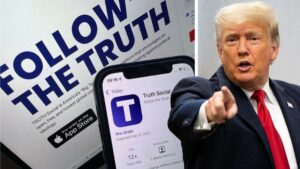
The kicker is that Section 230(c)(2) protects them from civil liability for any action “voluntary taken in good faith to restrict access to or availability of material that the provider or user considers being obscene, lewd, lascivious, filthy, excessively violent, harassing, or otherwise objectionable, whether or not such material is constitutionally protected.” In other words, these businesses are safe when they try to control their websites to eliminate these asocial practices. That notion is in keeping with the rights of common carriers, who have a broad duty to take all comers to save those who misbehave on the train—a good line of potential liability that Trump does not pursue.
Truth Social v. Big Tech: Trump’s statement alleging section 230 as unlawful is an exaggeration?
Trump, on the other hand, appears to go too far in calling Section 230 unlawful. Immunities are granted by governments to charitable, educational, and religious organizations. However, they are not liable for the activities of these organizations as a result of the funding. So it is in this case.
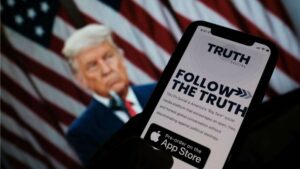
These measures are not “using the unlawful authority entrusted to them by Congress,” as Trump claims. However, he may amend his complaint to emphasize that the selective removals of information from their home sites were motivated primarily by political animosity and hence are not covered by Section 230. (c). The phrase “otherwise undesirable” does not give firms carte blanche to do anything they want. Rather, it functions as a restricted savings clause that solely applies to abusive speech.
To put this limitation in context, holding that any famous scientist who disagrees with the World Health Organization’s or the CDC’s established wisdom is engaging in “disinformation” would reek of “bad faith,” given the explicit viewpoint discrimination on a contested fact.
Truth Social v. Big Tech: Trump also touches a sensitive nerve on the issue at hand
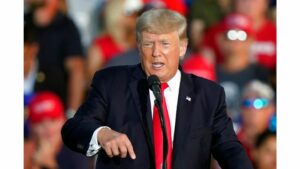
The Trump complaint also touches a sensitive nerve when it claims that Twitter, Facebook, and Google acted “in concert” with the government. The point here, which can be fleshed out more, is that these firms collaborated with the CDC and incoming Biden administration officials to perfect their attack on Trump and the many other people who were similarly de-platformed. In general, such claims cannot be dismissed on the basis that the private party has the final say over the decision. The constitutional wording has once again been interpreted wide to guarantee vital personal liberty from all sorts of government aggression.
Burton v. Wilmington Parking Authority is a significant constitutional judgment (1961). The Eagle Coffee Shoppe, Inc. ran a café in a city-owned public parking garage in that instance. Burton, a black customer, was refused service simply because of his race. Even though the Eagle Coffee Shoppe, and only the Eagle Coffee Shoppe, excluded the plaintiff on the basis of race, the Supreme Court unanimously reversed, holding that the “state participation” in the overall construction and management of the parking facility made that ostensibly private decision illegal under the Equal Protection Clause.
[fvplayer id=”143″]
Kayleigh McEnany presents her opinion on Trump’s Big Tech lawsuits in a conversation with Fox Business
“No state may effectively abdicate its responsibilities by either disregarding them or simply neglecting to discharge them, whatever the purpose may be,” the court said, even if it was acting in good faith. The First Amendment should be treated in the same way. The city agency has “so far insinuated itself into a position of interdependence with Eagle that it must be considered as a joint participant in the disputed action,” according to Burton. As a result, for the purposes of the First Amendment, the behaviour was not “purely private.”
It’s unclear whether Burton covers the reported amount of coordination between the CDC and incoming Biden administration officials. But it’s not enough to state that Twitter, Google, or Facebook made the final choice.
A fact-intensive investigation on the horizon for Trump’s lawsuits
At the very least, these defendants should not be able to dismiss the case based just on the pleadings but will instead be subjected to a fact-intensive investigation to determine if the private/public links are close enough in each case to convert private into state activity. Those conclusions might readily differ from plaintiff to plaintiff, which could jeopardize the case’s ability to proceed as a class action, compelling each complainant to pursue their own case.
[fvplayer id=”144″]
A desultory contradicting opinion on Trump’s Big Tech lawsuits by TYT
The Equal Protection Clause of the Fourteenth Amendment was given an expansive construction in Burton because of its historical significance. The reasoning of the court can easily be applied to censorship allegations brought under the First Amendment.
Unfortunately, none of the numerous condemnations of the Trump lawsuit ever emphasize the defendants’ vulnerability if the superficially plausible claim of concerted action is true.
Truth Social v. Big Tech: Trump’s address preceding Capitol riot casts a shadow of doubt over the issue
Start with the most basic argument: Trump’s conduct surrounding the occupation of the Capitol building on January 6, 2021, constituted an incitement to violence, and Twitter (now as a government actor) may lawfully ban him for life. In Brandenburg v. Ohio (1969), involving the Klu Klux Klan’s organizing efforts, the proper government response to possible threats of violence was articulated: “the constitutional guarantees of free speech and free press do not permit a State to forbid or proscribe advocacy of the use of force or law violation except where such advocacy is directed to inciting violence.”
[fvplayer id=”145″]
Trump and fellow Republicans incite the crowd before mob storms Capitol (coverage by Washinton Post)
There is no grey area here: whatever the accurate interpretation of Trump’s words on January 6, 2021, is, the probability of future bloodshed is extremely low and not imminent. As a result, the government (and its private backers) must remain silent until he does some egregious act. Trump’s unpredictable tweeting/commenting does not even come close to meeting Brandenburg’s criteria.
Similarly, Twitter’s efforts to ban statements from prominent scientists who claim, more than plausibly, that COVID-19 is a virus that escaped from the Wuhan Institute of Virology are exactly the type of viewpoint discrimination that the Constitution prohibits—at least if Twitter acted in concert with the federal government.
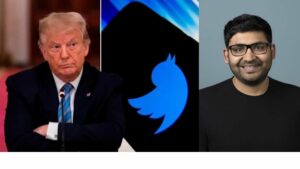
In Abrams v. the United States (1919), a lawsuit alleging wartime plots against the US, Justice Oliver Wendell Holmes noted that “the fairest measure of truth is the capacity of the notion to get itself accepted in the competition of the market,” which applies to the COVID-19 public health disputes. The truth can only be defined once all points of view have been heard, which will not happen if companies like Facebook can muzzle critics until the government changes its mind.
None of the numerous condemnations of Trump’s lawsuit took the time to evaluate the social practises of these massive internet corporations, whose adamant positions may have impeded sensible responses to COVID. The tech firms named in Trump’s lawsuit may have worked for hand in hand with government agencies. If that’s the case, they should be held to the same constitutional standards as their government counterparts.
Also read:
Trump v. Big Tech: Trump’s Big Tech Lawsuits to herald
Table of Contents





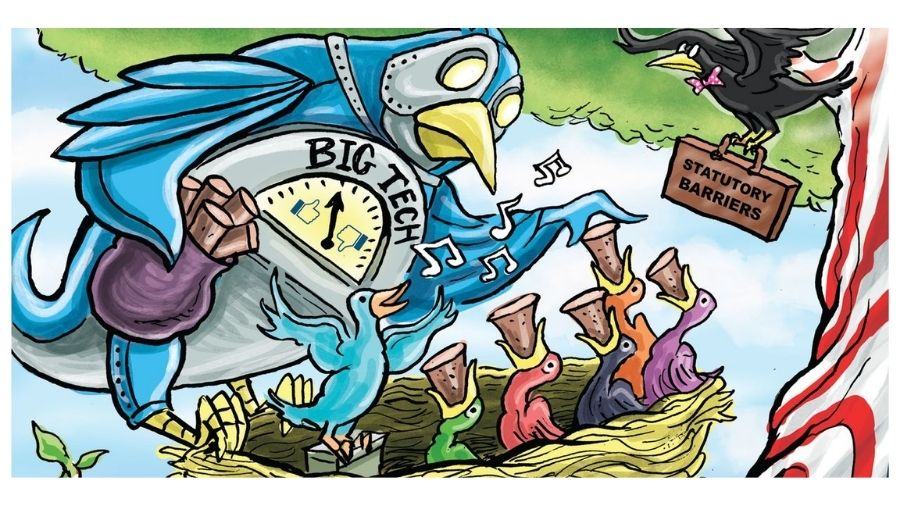

Add Comment